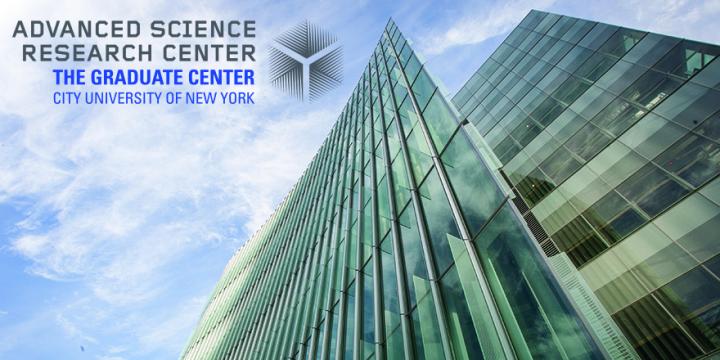Center for Advanced Technologies in Sensors for Exploration of Natural Systems and Environments will receive funding across 10-year term

Credit: ASRC
NEW YORK, June 27, 2019 – Empire State Development (ESD) today announced that its Division of Science, Technology and Innovation (NYSTAR) has awarded a Center for Advanced Technology designation to The City University of New York (CUNY). The university’s new state-of-the-art Advanced Science Research Center (ASRC), part of The Graduate Center and located in Harlem, will host the Center for Advanced Technologies in Sensors for Exploration of Natural Systems and Environments (CAT-SENSE) to assist with job creation through the development and commercialization of technologies in New York State. NYSTAR will provide the center with nearly $8.8 million in funding over the course of the ten-year designation.
Empire State Development President, CEO & Commissioner Howard Zemsky said: “The City University of New York is one of the most prestigious, diverse public university systems in the United States –and it is at the forefront of academic achievement and scientific discovery. This designation recognizes CUNY’s work to develop and commercialize new sensor technology and will help develop our economy, create jobs and generate opportunity.”
“We are excited about the opportunities that CAT-SENSE will bring for STEM entrepreneurship, industry partnership and workforce development across New York State and all 25 CUNY campuses,” said CUNY Chancellor Félix V. Matos Rodríguez. “Our faculty and students contribute significant intellectual capital to New York, and this new partnership will provide resources and infrastructure for developing these contributions in an intentional way that drives economic development across New York.”
The CAT-SENSE will facilitate academic-industrial partnerships to develop next- generation sensor systems and applications, tap into the growing global sensor technologies market, and help New York State accelerate its role as an applied research and business leader. The center will also play a vital role in connecting intellectual and research resources by supporting entrepreneurial partnerships between researchers and the state’s business innovators and leaders.
The CAT-SENSE will encompass all aspects of sensor design, development and prototyping. Specifically, it will focus on biomedical and environmental sensors, and the development of new approaches to high-sensitivity sensing by incorporating New York’s advanced research and expertise in photonics, materials and nanoscience. Application areas for these sensors run the gamut from fundamental laboratory research to prototype sensors for food, cosmetics and biomedical industries; including wearable sensors, ultrasensitive biosensors and biodegradable sensors.
“The ASRC is a hub for advanced technology and interdisciplinary research, and it is well positioned to seed development of next-generation sensors for wireless technology and medical, personal-health and environmental monitoring,” said Annette Gray, associate dean for the sciences at The Graduate Center, CUNY and executive director of the ASRC. “Under the leadership of Dr. Rein Ulijn, CAT-SENSE will help develop the talent and intellectual property that will attract industry, create jobs and make New York a leader in this multibillion-dollar industry.”
The CAT designation funding will be used to directly support economic impact in New York State through applied research, development and technology transfer. The funds are focused on budget items benefitting industry through support for CAT infrastructure, staffing, and direct research support to New York State companies.
###
About Empire State Development
Empire State Development (ESD) is New York’s chief economic development agency (http://www.
About the Advanced Science Research Center
The Advanced Science Research Center (ASRC) at The Graduate Center, CUNY is a world-leading center of scientific excellence, which elevates scientific research and education at CUNY and beyond through initiatives in five distinctive, but broadly interconnected disciplines: nanoscience, photonics, neuroscience, structural biology, and environmental sciences. The ASRC promotes a collaborative, interdisciplinary research culture where renowned scientists advance their discoveries using state-of-the-art equipment and cutting-edge core facilities.
Media Contact
Shawn Rhea
[email protected]
Original Source
https:/



